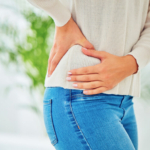Bloating and gas colic
The word ‘bloating’ indicates an accumulation of gas in the stomach and in the intestine, caused by fermentation or putrefaction or as a result of aerophagia. It manifests with swelling and increased abdominal tension, the presence of excessive quantities of gas in the stomach or in the intestine. Gas in the digestive tract can be caused by swallowed air or can be the normal consequence of the bacterial fermentation of foods, in particular dietary fibre, in the bowel’s lumen. Bloating is often accompanied by swelling, stomach pain, belching, halitosis, borborygm (rumbling), noisy emission of gas through the anus. Bloating is the consequence of incorrect eating habits, metabolism disorders, digestive problems, constipation, irritable bowel, dysbiosis.
A colic is the spasmodic contraction of the smooth muscles of the bowels (biliary duct, intestine, urinary tract). Intestinal gas colic is due to fermentation that dilates the loops of the intestine and the bowel, causing painful colic in newborns. Also known as ‘little colic’, it is a syndrome that appears in the first 3-4 months of the baby’s life, with a prevalence of 3% to 40%.
Characterised by excessive and inconsolable crying (desperate cries), it mainly occurs in the afternoon and evening. The crying is mainly accompanied by irritability and agitation. The possible causes include the immaturity of the gastrointestinal tract, lactose and/or milk protein intolerance, aerophagia, intestinal dysfunction.
Useful remedies
Activated charcoal
A light, dry, black powder; odourless and tasteless, extremely pure, finely micronised for optimal absorption. It is not absorbed in the intestine; rather, its tiny particles trap the air that develops in the stomach (when too much air is swallowed during meals) and in the intestine (imbalances in bacterial flora and anomalous fermentation of food). An excessive intake of vegetable charcoal can lead to constipation. This is why it is advisable to administer it with balanced combinations of plant extracts, possessing natural carminative properties that are capable of eliminating gases. It can reduce the absorption of any medicine taken at the same time, which is why it must be taken between administrations of medicine (at least 2 hours).
Fennel
Fennel fruit is used – in adults and paediatric patients – in dyspeptic disorders, in bloating, and in spasms of the gastrointestinal tract. It has stimulating/aromatic properties that induce increased gastric motility and secretion, facilitating digestion. They also reduce spasms of the gastrointestinal tract.
Caraway
Caraway fruit, whose activity is similar to that of green Aniseed, is aromatic, carminative and antimicrobial. It stimulates saliva, gastric and biliary secretions. It promotes digestion and counters intestinal atony. It exerts a sedative effect on the motility of the stomach and combats aerophagia, in particular. It combats flatulence, the anomalous formation of gas in the intestine and, consequently, the development of colic and digestive disorders.
Coriander
It helps treat disorders such as a feeling of fullness, flatulence and mild gastrointestinal spasms. It helps increase gastric secretions, thus facilitating digestion. Thanks to its antiseptic properties, it performs an anti-fermentation activity in the intestine.
Green aniseed
A good regulator of digestion (increase of gastric and saliva secretions) and an effective carminative. It also has antiseptic properties and helps inhibit the formation of fermentation in the gastrointestinal tract. It is indicated in the symptomatic treatment of epigastric swelling, slow digestion, aerophagia, flatulence, and as an adjuvant in the treatment of pain associated with functional digestion disorders.
Lemon
The peel has proven aperitive and eupeptic, aromatic bitter-tonic, antispasmodic, balsamic, antiseptic properties. In fact, it is used in cases of dyspepsia.
Camomile
A plant with anti-spasmodic properties, it is particularly suitable to sedate painful symptoms, such as intestinal colic or dysmenorrhea. It also has proven anti-inflammatory, cicatrising, anti-ulcer, antibacterial, and spasmolytic properties.
As a spasmolytic and carminative, it is suitable for digestive colic (colitis, bloating) and in the event of alteration of the bacterial flora, as it helps reconstitute it. Moreover, it has important aromatic and embittering properties that can facilitate digestion.
Lemon Balm
Used in the treatment of anxiety accompanied by restlessness and irritability, digestive disorders (gastric neurosis) and minor sleep disorders, it has antispasmodic and sedative properties. It acts as a tranquilliser, antispasmodic and carminative. Together with Camomile, Fennel, and Verbena, it is part of the composition of preparations used to treat infant colic. It has also been proven to reduce sensitivity to pain.
Bifidobacterium infantis
This probiotic belongs to the Bifidobacteriaceae family, characterised by the ability to survive in the absence of oxygen (anaerobic bacteria). The international scientific literature shows that children who were breastfed have a higher concentration of Bifidobacteria than those who did not benefit from breastfeeding. It also improves protection from pathogenic germs.
Aeris line
To promote regular gastrointestinal motility and the elimination of intestinal gas, Specchiasol has formulated Aeris drops and capsules.
Aeris Drops
Food supplement with Caraway, Lemon Balm, and Bifidobacterium infantis. It offers relief from symptoms of gas colic and bloating, helping to reduce intestinal spasms and eliminate gas. The recommended dose for newborns is 5 drops before each feed (6-8 times a day). In case of severe gas colic, we can suggest increasing the dosage to 10 drops for afternoon and evening feeds. Aeris drops can be taken by the mother (passing through breastmilk). In such case, it is recommended to take 20 drops, twice a day, before meals.
Aeris Capsules
Food supplement with Fennel, Lemon Balm, Green Aniseed, Lemon. It favours regular gastrointestinal motility and the elimination of gas. In general, it is recommended to take 2-3 capsules a day, after the main meals.







